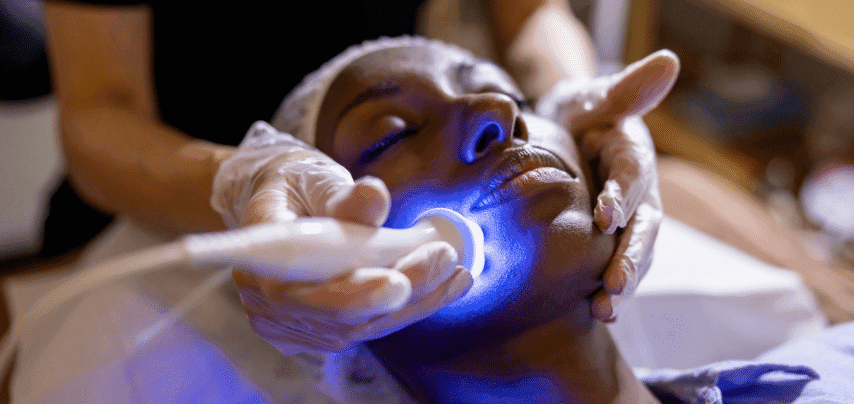The surge in popularity of cosmetic and aesthetic procedures such as Botox, dermal fillers, and other non-surgical treatments has brought with it increased scrutiny on prescribing practices, particularly around remote consultations. Over the past few months, three of the UK’s leading health and care regulators – the GMC, GPhC and NMC - have issued updated guidance that collectively essentially eliminates the practice of remote prescribing for cosmetic procedures in England and Wales. In this blog, we look back at how this regulatory journey has unfolded and assess its likely impact on practitioners and their service users.
The GMC leads the way
The GMC’s position on prescribing medication for non-surgical elective cosmetic treatments in the UK has long been clear. It does not like it. Its guidance stipulates that all GMC-registered medical practitioners must conduct a face-to-face physical examination before prescribing any injectable cosmetic medicine, such as Botox, Dysport, Vistabel or hyaluronidase. Practitioners are prohibited from prescribing these medicines remotely, and any form of remote prescribing (whether via phone, video, online, or at another person’s request without examination) is not permitted.
The GMC first adopted this position in 2012 when it announced a clear ban on remote prescribing by doctors of cosmetic injectables. This directive was formally integrated into the GMC’s Guidance for Doctors Who Offer Cosmetic Interventions, which has been effective from 1 June 2016. Paragraph 11 of this Guidance mandates in-person exams before prescribing injectables:
‘You must carry out a physical examination of patients before prescribing injectable cosmetic medicines. You must not therefore prescribe these medicines by telephone, video link, online or at the request of others for patients you have not examined.’
The use of the word ‘must’ is important in this context: ‘You must’ is used by the GMC to denote a legal or ethical duty that its registrants are expected to meet (or be able to justify why they didn’t).
The GDC follows suit
Following the GMC’s lead, the General Dental Council (GDC) introduced its own formal prohibition on remote prescribing for cosmetic procedures in guidance issued in September 2013. This guidance made it clear that dentists must not remotely prescribe for any non-surgical cosmetic procedures, including Botox and other injectable cosmetic prescription medicines. The GDC guidance also clarified that, whilst remote prescribing may be allowed in rare cases for essential dental medicines when face-to-face is impossible and it is in the patient’s best interest, this exception does not apply to cosmetic injectables.
The GPhC position
The General Pharmaceutical Council (GPhC) regulates pharmacists, including pharmacist independent prescribers (PIPs). It launched a consultation in March 2019 to provide guidance for PIPs, which included sections on remote prescribing and specific safeguards against prescribing non-surgical cosmetic medicinal products without physical examination. This was followed by the GPhC’s finalised guidance called “In practice: Guidance for pharmacist prescribers”, published in November 2019. This embedded the principle that pharmacist prescribers must conduct face-to-face assessments and non-surgical cosmetic medicines must not be prescribed remotely without physical examination.
The Regulators combine to produce the Ten Principles
2019 also saw the publication of a key document called the ‘High-level principles for good practice in remote consultations and prescribing’. This initiative, published in November 2019, involved multi-regulator and cross-professional collaboration, spanning medical, dental, optical, pharmaceutical, nursing/midwifery, allied health, and system-level oversight bodies. It set out ten safety-focused standards developed by UK healthcare regulators to ensure remote prescribing was clinically appropriate, transparent, and in the patient’s best interest. Key principles included verifying patient identity, obtaining informed consent, conducting adequate clinical assessments, clearly communicating treatment options, maintaining detailed records, and ensuring practitioner competence. The document highlighted that some categories of medicines were not suitable to be prescribed remotely, particularly where the services aren’t linked to a patient’s GP or regular healthcare provider.
Role of the JCCP and the mooted Aesthetics Licensing Scheme
Between 2019 and 2022, the Joint Council for Cosmetic Practitioners (JCCP) played an increasingly proactive role in cementing the ban on remote prescribing for cosmetic treatments. In 2019, it published a comprehensive guidance on responsible prescribing, explicitly stating that remote or delegated prescribing of prescription-only injectable medicines for non-surgical cosmetic procedures was unacceptable and emphasising that prescribers must conduct a face-to-face consultation before prescribing. At the same time, the JCCP intensified its lobbying for statutory licensing of non-surgical aesthetic practitioners and premises, with the pathway to reform eventually being set in stone under section 180 of the Health & Care Act 2022.
Although progress of the Aesthetics Licensing Scheme appears to have stalled for now, the JCCP’s pressure looks to have paid off. On 13 December 2024, the GMC updated its guidance on remote prescribing to coincide with the announcement of its wider regulation of physician associates (PAs) and anaesthesia associates (AAs), in addition to doctors. Unsurprisingly, the GMC’s long-standing ban on remote prescribing was unequivocally reaffirmed.
In February 2025, the GPhC published its own updated guidance for registered pharmacies providing distance services, again significantly tightening safeguards around remote prescribing. The guidance was essentially a response to the explosion in online weight-loss medication prescriptions. Nevertheless, it made it clear that high-risk medicines, including
those used for cosmetic purposes, must not be prescribed without thorough clinical assessment, which cannot rely on online questionnaires alone. This requires real-time, two-way communication, robust identity and data verification, and clear exclusion criteria. Pharmacy owners and superintendent pharmacists now carry enhanced responsibilities to ensure compliance through active oversight and audit. In practice, the guidance reinforces the position that remote prescribing of cosmetic injectables is inappropriate and unsafe.
NMC belatedly joins the party
The last (and arguably most important in this context) of the regulators to join the party was the Nursing and Midwifery Council (NMC). The NMC regulates nurse and midwife prescribers. It announced, in updated guidance published at the end of April 2025, that nurse and midwife independent prescribers were no longer permitted to remotely prescribe medicines for elective non-surgical cosmetic procedures with effect from 1 June 2025.
The NMC’s announcement was widely anticipated but still caused shockwaves across the sector. It followed a 2024 review by the NMC aimed at enhancing patient safety and upholding prescribing standards across the aesthetic industry. This decision will have a significant impact across the beauty and aesthetic industry, especially for non-medically registered practitioners who administer prescribed medications and treatments to their clients.
In summary, the updated NMC guidance means that remote prescribing methods, such as telephone and video calls, emails, or communication through third parties, will no longer be acceptable for any stage of the prescribing process. This applies not only to the initial consultation but also to top-ups and repeat prescriptions.
It means that a face-to-face consultation and clinical assessment must be carried out by a qualified prescriber before any treatment takes place. A face-to-face consultation and clinical assessment will be required for every prescription involving non-surgical cosmetic procedures.
While the new guidance is aimed at NMC registered nurse and midwife prescribers, it will directly impact all non-registered aesthetic practitioners involved in administering prescribed non-surgical cosmetic interventions such as Botox. Under the updated guidance, nurse prescribers are still legally permitted to prescribe these medications to be administered by a non-registered practitioner such as a beauty therapist. However, this practice will now come under much greater scrutiny as the guidance emphasises that delegating does not mean handing over responsibility. Prescribers remain legally and professionally accountable for the entire process of care, even when they are not the ones physically carrying out the procedure.
In practical terms, this means that, before any medicine is administered, the prescriber must ensure that the individual they delegate to is appropriately qualified, competent, and proficient in both the medicine being used and the specific technique required. This isn’t just about general experience - it means being confident that the practitioner has the necessary training, understands the risks, and can respond to complications if they arise.
Equally important is the environment in which the procedure is carried out. Prescribers must be satisfied that the setting is suitable, safe, and meets clinical standards.
For non-medical aesthetic practitioners, this means collaborating closely with their prescriber. If a practitioner is being delegated to, they should expect the prescriber to check their qualifications and skill level, ask about their treatment environment, and maintain a clear plan for aftercare.
However, significant concerns exist about how this requirement for continuing prescriber involvement will work in practice. The prescriber remains responsible for not only assessing treatment outcomes and providing follow-up care but also managing any adverse events or complications. This last point is particularly controversial. If a client experiences an adverse reaction or unexpected side effect, it is the prescriber’s duty to assess the situation and provide appropriate follow-up care. Crucially, if the management of the complication requires a prescription-only medicine, such as Hyalase to dissolve fillers, the prescriber must be directly involved as non-medical practitioners cannot legally prescribe or source these medications without a Patient Specific Direction (PSD).
This begs the question of what happens in an emergency if, as in so many instances, there is no prescriber readily available on site? And what does it mean for the current practice of colleges providing graduates with emergency kits?
Conclusion
As the regulatory net tightens, one thing is clear: the days of remote prescribing for cosmetic interventions are over. The message from all four major UK regulators - GMC, GPhC, GDC and NMC - is now consistent and unequivocal: face-to-face consultation and clinical assessment are not optional, but essential. The impact of these efforts appears to be closely aligned with the long-mooted Aesthetic Licensing Scheme which, if and when it ever finally sees the light of day, will mandate minimum standards for practitioners, premises, and procedures across the non-surgical cosmetic industry.
For prescribers, these changes demand more active and ongoing involvement in patient care, from initial consultation to follow-up and complication management. For non-medical aesthetic practitioners, they mean adapting to closer oversight, clearer boundaries, and potentially more restricted access to prescription-only medicines. For service users and the public, they reflect a broader shift toward recognising non-surgical cosmetic procedures as healthcare interventions requiring the same safeguards and professional standards as other areas of clinical practice.
…
“The information contained in this article does not represent a complete analysis of the topics presented and is provided for information purposes only. It is not intended as legal advice and no responsibility can be accepted by Altea for any reliance placed upon it. Legal advice should always be obtained before applying any information to particular circumstances.”




